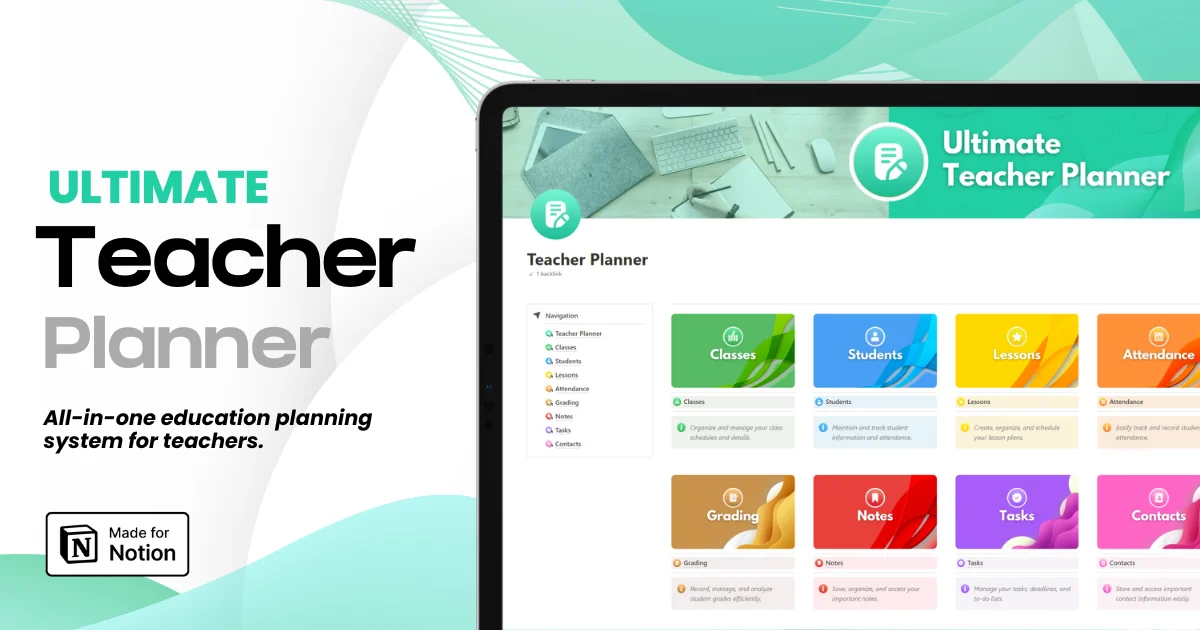

Effective Strategies to Improve Your GCSE English Performance
Effective Strategies to Improve Your GCSE English Performance
Effective Strategies to Improve Your GCSE English Performance


Article by
Milo
ESL Content Coordinator & Educator
ESL Content Coordinator & Educator
All Posts
Doing well in GCSE English can feel tough. You’re not just being tested on reading and writing—you’re being tested on understanding, analysis, and clear expression. But the good news is, with the right strategies, you can improve your skills and boost your grades. This guide will show you practical steps to take your performance to the next level.
Doing well in GCSE English can feel tough. You’re not just being tested on reading and writing—you’re being tested on understanding, analysis, and clear expression. But the good news is, with the right strategies, you can improve your skills and boost your grades. This guide will show you practical steps to take your performance to the next level.
Ultimate Teacher Planner
The ultimate all-in-one education management system in Notion.
Learn More

Ultimate Teacher Planner
The ultimate all-in-one education management system in Notion.
Learn More

Ultimate Teacher Planner
The ultimate all-in-one education management system in Notion.
Learn More

Understand the Exam Structure
The first step to improving your GCSE English is knowing the exam inside out. There are usually two main parts: English Language and English Literature. Language exams test reading comprehension and writing skills. Literature exams focus on analysing texts, themes, and characters.
Knowing what examiners look for is key. They want clarity, evidence from texts, and well-structured answers. Marks are given not just for what you say, but how you say it. English tutors for GCSE often stress the importance of studying past papers and mark schemes. This shows you what high-scoring answers look like and helps you spot patterns in questions. Take time to read the exam board’s guidelines so you know exactly what’s expected.
Strengthen Your Reading and Comprehension Skills
Reading is at the heart of English. The more you practice, the easier it gets to understand texts quickly and accurately. Try reading a mix of fiction, non-fiction, and poetry. Each type teaches different skills.
Focus on these three things:
Tone and purpose: Ask yourself why the writer chose certain words or style. Are they informing, persuading, or entertaining?
Perspective: Whose point of view is this? How does it affect the text?
Literary devices: Look for similes, metaphors, alliteration, or personification. Think about how they shape meaning.
Annotating your text while reading helps. Underline key points, circle tricky words, and jot down notes in the margin. Even 15 minutes a day can make a big difference.
Master Essay Writing Techniques
Writing essays is where many students struggle. But if you follow a clear structure, it becomes much easier.
Start with an introduction. Clearly state your argument or main point.
Use PEE or PEEL paragraphs. Point, Evidence, Explain (Link optional). Each paragraph should make one point supported by evidence from the text.
Conclude effectively. Summarize your ideas and reinforce your argument.
When you use quotations, don’t just drop them in. Explain why they matter and how they support your point. Practice writing short, focused paragraphs that make your argument clear. Even one well-analyzed quotation is better than a long, vague paragraph.
Expand Your Vocabulary and Grammar
Your choice of words can make a big difference. Using a variety of vocabulary and sentence structures makes your writing more engaging. You don’t need to use complicated words—just choose words that express your meaning clearly.
Also, check your grammar. Poor punctuation or sentence structure can cost marks. Focus on simple, correct sentences first. Then, gradually add variety—short and long sentences, different sentence starters, and precise words.
Keeping a small vocabulary journal helps. Write down new words you come across while reading and practice using them in sentences. Tools like flashcards or apps can make this easier.
Practice Past Papers Under Timed Conditions
Practicing under exam conditions is crucial. It helps you get used to time limits and exam pressure. Set a timer, sit at a desk, and treat it like the real thing. Then, check your answers against the mark scheme.
Look at your mistakes and think about why you lost marks. Are your paragraphs too short? Are you missing evidence? Track your progress over time. Regular practice not only improves your skills but also builds confidence.
Develop Critical Thinking and Interpretation
Exams often ask you to go beyond the text. You’ll need to explain why the author wrote it that way and how different elements link together. Developing critical thinking helps you make stronger points and write deeper analysis.
For unseen texts, approach them with curiosity. Ask yourself: what is the theme? What’s the tone? What does the writer want me to feel or think? Highlight key words and phrases that support your answer.
When comparing texts, focus on similarities and differences in themes, techniques, and characterisation. Simple comparison sentences like “Both writers use… to show…” can make your points clear and easy to follow.
Seek Feedback and Support
Getting feedback is one of the fastest ways to improve. Show your essays to teachers, peers, or tutors. Ask them to point out both strengths and weaknesses. Pay attention to recurring comments and work on them.
Study groups can help too. Discussing texts with others gives you new perspectives and helps you understand difficult ideas. If you’re struggling with certain skills, consider working with a tutor—they can give targeted support and strategies tailored to your needs.
Build Exam Confidence and Manage Stress
Even if you know the content, exams can feel stressful. Learning how to manage that stress is just as important as learning English.
Plan your time. Allocate minutes per question and stick to it.
Stay calm. Take deep breaths if you feel panicked.
Balance study and rest. Don’t sacrifice sleep for extra revision—your brain works better when it’s rested.
Practice self-care. Eat well, stay hydrated, and take breaks. A healthy mind performs better under pressure.
Confidence comes from preparation. The more you practice and review, the more comfortable you’ll feel in the exam.
Conclusion
Improving your GCSE English doesn’t happen overnight, but it’s definitely achievable. Focus on understanding the exam, reading actively, writing clearly, and building your vocabulary. Practice past papers, think critically, and get feedback. Take care of yourself, manage stress, and keep a steady pace.
Remember, it’s not just about working harder—it’s about working smarter. Small, consistent steps add up. If you apply these strategies, you’ll see improvement in your grades and in your confidence. Stick with it, and your GCSE English performance can reach the level you want.
Understand the Exam Structure
The first step to improving your GCSE English is knowing the exam inside out. There are usually two main parts: English Language and English Literature. Language exams test reading comprehension and writing skills. Literature exams focus on analysing texts, themes, and characters.
Knowing what examiners look for is key. They want clarity, evidence from texts, and well-structured answers. Marks are given not just for what you say, but how you say it. English tutors for GCSE often stress the importance of studying past papers and mark schemes. This shows you what high-scoring answers look like and helps you spot patterns in questions. Take time to read the exam board’s guidelines so you know exactly what’s expected.
Strengthen Your Reading and Comprehension Skills
Reading is at the heart of English. The more you practice, the easier it gets to understand texts quickly and accurately. Try reading a mix of fiction, non-fiction, and poetry. Each type teaches different skills.
Focus on these three things:
Tone and purpose: Ask yourself why the writer chose certain words or style. Are they informing, persuading, or entertaining?
Perspective: Whose point of view is this? How does it affect the text?
Literary devices: Look for similes, metaphors, alliteration, or personification. Think about how they shape meaning.
Annotating your text while reading helps. Underline key points, circle tricky words, and jot down notes in the margin. Even 15 minutes a day can make a big difference.
Master Essay Writing Techniques
Writing essays is where many students struggle. But if you follow a clear structure, it becomes much easier.
Start with an introduction. Clearly state your argument or main point.
Use PEE or PEEL paragraphs. Point, Evidence, Explain (Link optional). Each paragraph should make one point supported by evidence from the text.
Conclude effectively. Summarize your ideas and reinforce your argument.
When you use quotations, don’t just drop them in. Explain why they matter and how they support your point. Practice writing short, focused paragraphs that make your argument clear. Even one well-analyzed quotation is better than a long, vague paragraph.
Expand Your Vocabulary and Grammar
Your choice of words can make a big difference. Using a variety of vocabulary and sentence structures makes your writing more engaging. You don’t need to use complicated words—just choose words that express your meaning clearly.
Also, check your grammar. Poor punctuation or sentence structure can cost marks. Focus on simple, correct sentences first. Then, gradually add variety—short and long sentences, different sentence starters, and precise words.
Keeping a small vocabulary journal helps. Write down new words you come across while reading and practice using them in sentences. Tools like flashcards or apps can make this easier.
Practice Past Papers Under Timed Conditions
Practicing under exam conditions is crucial. It helps you get used to time limits and exam pressure. Set a timer, sit at a desk, and treat it like the real thing. Then, check your answers against the mark scheme.
Look at your mistakes and think about why you lost marks. Are your paragraphs too short? Are you missing evidence? Track your progress over time. Regular practice not only improves your skills but also builds confidence.
Develop Critical Thinking and Interpretation
Exams often ask you to go beyond the text. You’ll need to explain why the author wrote it that way and how different elements link together. Developing critical thinking helps you make stronger points and write deeper analysis.
For unseen texts, approach them with curiosity. Ask yourself: what is the theme? What’s the tone? What does the writer want me to feel or think? Highlight key words and phrases that support your answer.
When comparing texts, focus on similarities and differences in themes, techniques, and characterisation. Simple comparison sentences like “Both writers use… to show…” can make your points clear and easy to follow.
Seek Feedback and Support
Getting feedback is one of the fastest ways to improve. Show your essays to teachers, peers, or tutors. Ask them to point out both strengths and weaknesses. Pay attention to recurring comments and work on them.
Study groups can help too. Discussing texts with others gives you new perspectives and helps you understand difficult ideas. If you’re struggling with certain skills, consider working with a tutor—they can give targeted support and strategies tailored to your needs.
Build Exam Confidence and Manage Stress
Even if you know the content, exams can feel stressful. Learning how to manage that stress is just as important as learning English.
Plan your time. Allocate minutes per question and stick to it.
Stay calm. Take deep breaths if you feel panicked.
Balance study and rest. Don’t sacrifice sleep for extra revision—your brain works better when it’s rested.
Practice self-care. Eat well, stay hydrated, and take breaks. A healthy mind performs better under pressure.
Confidence comes from preparation. The more you practice and review, the more comfortable you’ll feel in the exam.
Conclusion
Improving your GCSE English doesn’t happen overnight, but it’s definitely achievable. Focus on understanding the exam, reading actively, writing clearly, and building your vocabulary. Practice past papers, think critically, and get feedback. Take care of yourself, manage stress, and keep a steady pace.
Remember, it’s not just about working harder—it’s about working smarter. Small, consistent steps add up. If you apply these strategies, you’ll see improvement in your grades and in your confidence. Stick with it, and your GCSE English performance can reach the level you want.
Ultimate Teacher Planner
The ultimate all-in-one education management system in Notion.
Learn More

Ultimate Teacher Planner
The ultimate all-in-one education management system in Notion.
Learn More

Ultimate Teacher Planner
The ultimate all-in-one education management system in Notion.
Learn More

2025 Notion4Teachers. All Rights Reserved.
2025 Notion4Teachers. All Rights Reserved.
2025 Notion4Teachers. All Rights Reserved.
2025 Notion4Teachers. All Rights Reserved.








